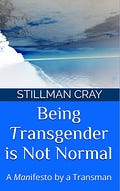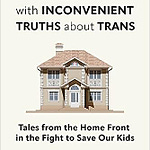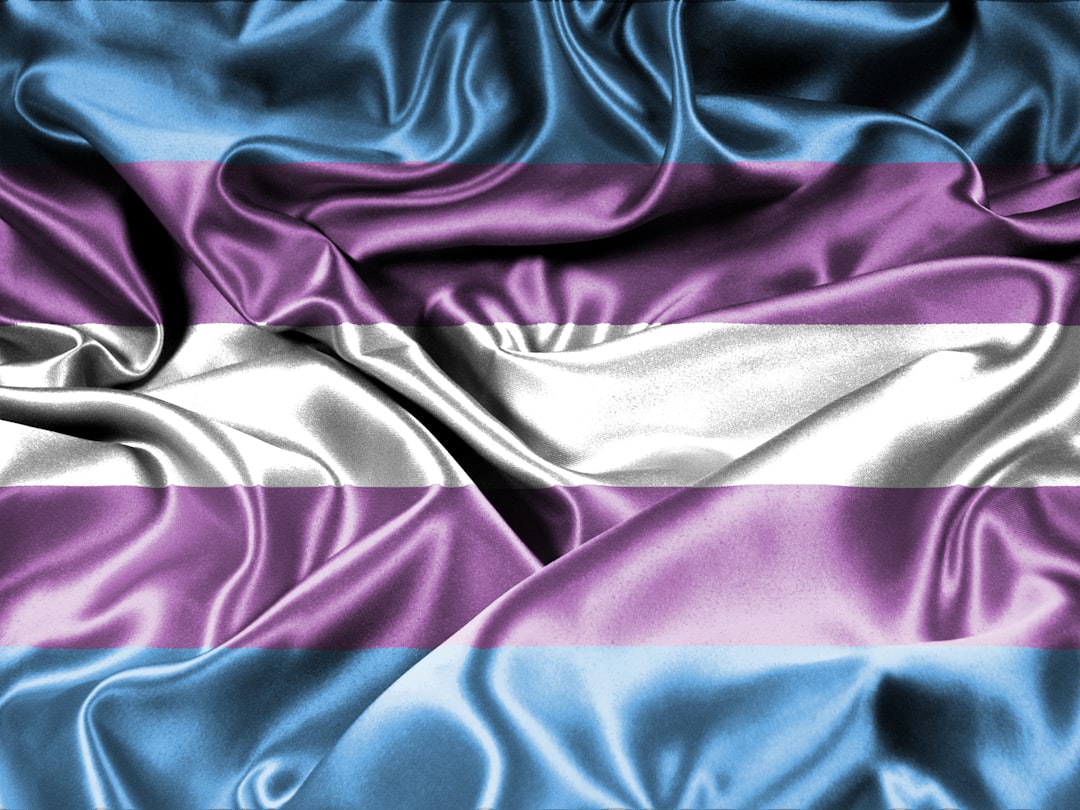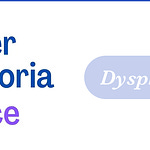In the next installment in my ongoing series of interviews of trans people with diverse viewpoints comes a therapist and trans man who goes by the pen name Stillman Cray. We’re not using his real name because he fears personal and professional repercussions. Stillman has penned a book called Being Transgender Is Not Normal: A Manifesto by a Transman, and also crafted an interesting checklist for people considering transition which I think could be really useful. See that below. Transcript coming soon, when I’m a little further along in Covid recovery.
Confronting the Self
I can’t stress how imperative it is to transition for the right reasons as opposed to an idea or to make a social statement (even to yourself).
It is one thing to dress in gender opposite clothing, adopt another name, and present yourself a certain way. When you come to the bridge of hormones and surgery, however, it is wise to know as much information as you can -- the good and the bad. I hope this helps.
Concrete questions you MUST ask yourself:
"Why" do I dislike my body? Be specific, not general.
What is my concept of the expectations for a woman and a
man?
Is my physical body the issue or is my psychological concept
of gender the problem?
Am I uncertain? Am I doing this because I have friends that
are questioning?
Do I know what my sexuality is and am I confusing gender
with sexual attraction?
Have I experienced what I want to, sexually, before I try
hormones/surgery? (You may want to have a 'before and after' comparison). Even if sex is not something you care about ‘now’, chances are you will change and that natural inclination will matter a lot to you. Confront your expectations.
Do I realize that sex may be compromised by transitioning (physically) and potentially more dangerous (being discovered) because my anatomy does not match my preferred gender? (This applies if you don’t do bottom surgery).
Do I understand that transitioning is a lifelong decision that will alter the course of my life in ALL realms?
Am I prepared to take accountability for my choices throughout the process?
How will I pay for the necessary hormones and/or surgery (surgeries)?
What is my goal?
Do I believe hormones and surgery will make me forever
happy and at peace in my skin? (This is a critical question). Although hormones and surgical intervention can alleviate distress, they do not equate to a magic wand making everything perfect.
13. ***Do I fully understand that no matter what hormones and surgery I have, I will never be the opposite sex? I am a third gender even if I am passing.
Do I think I will ever want children? I may not now, but I am young and time changes things.
What steps do I need to take to preserve eggs/sperm? (It’s expensive).
What is my support system like?
What questions have I not asked other trans individuals and
myself?
What questions am I afraid to ask myself because I may not
like the answer(s)?
Lifelong, existential questions:
Who am I at the core?
What role do I see myself playing in society? Does my gender impact that role? If so, do I believe changing genders will make it easier or do I wish to change genders because this is how I “truly” identify?
Bio: I legally changed my name at 18; underwent surgery in Canada the day after I turned 20; started hormones two months later. I have been on T (testosterone injections) for 17 years. I hold an MFA in Creative Writing. I am studying clinical mental health counseling in a second master’s program.

















Heterodox Trans People #2